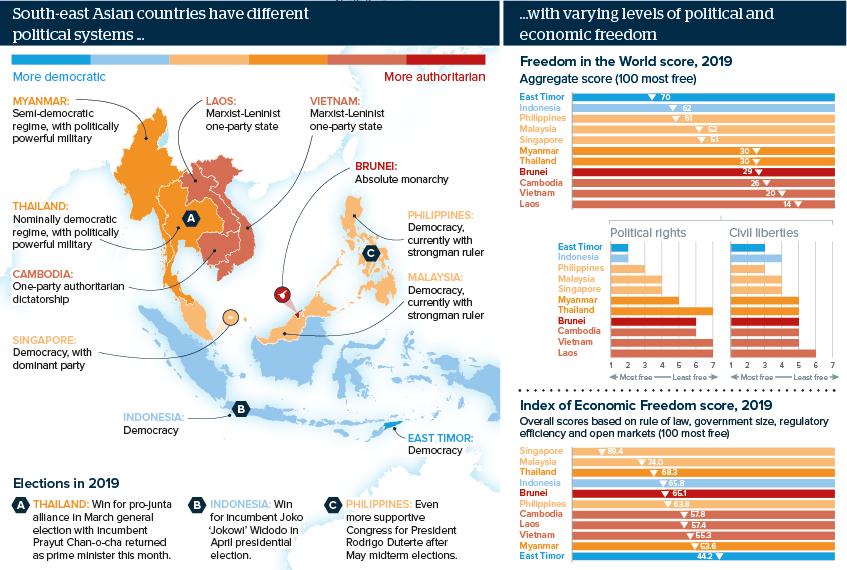South-east Asia’s lack of democracy will have costs
The region is increasingly characterised by authoritarian governments
Source: Freedom House; The Heritage Foundation; Oxford Analytica
Outlook
Recent elections in Indonesia, the Philippines and Thailand brought favourable results for an aspiring reformer, a populist strongman and a former junta leader respectively, underscoring the complexity of South-east Asia’s political landscape. In many countries within the region, illiberal regimes hold sway.
Some foreign businesses may be unconcerned by the generally low levels of democratic freedom in South-east Asia, cognisant that authoritarian governments do not necessarily constrain their trade and investment freedoms.
Yet across the region, erosion of political rights and civil liberties could eventually prompt popular pushback that threatens regime stability, besides inviting growing international opprobrium.
Impacts
- Many South-east Asian countries will see intensifying crackdowns on press and internet freedoms, likely inciting protests.
- The region’s authoritarian states will be able to rely on Chinese support, even if they come under diplomatic pressure from Western powers.
- ASEAN will do little to address concerns over human rights, adhering to a principle of non-interference in members’ domestic affairs.
See also
- ASEAN aims to widen focus beyond Myanmar at summits - Oct 20, 2021
- Thai furore shows concern over dissidents in region - Jun 9, 2020
- Presidential handover in Philippines would be messy - Jan 24, 2020
- Myanmar’s ethnic parties will unite as polls approach - Aug 8, 2019
- Myanmar military will defend its parliamentary numbers - Jul 31, 2019
- Philippines’s Duterte is showing autocratic tendencies - Jun 28, 2019
- Prospects for South-east Asia to end-2019 - Jun 4, 2019
- More graphic analysis
